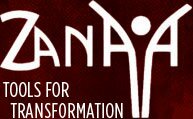Hands down, keeping girls in school is a winner for society in nearly every way possible. (Click here for fast facts on this).
We know that providing adolescent girls with sanitary pads is vital but also not enough alone to insure success in school. Youth also require psychosocial support, positive role models and a safe space to discuss sensitive issues. At ZanaA, our Empowerment Club program provides youth with this support. Students meet once a week with a ZanaA field officer in groups of about 20 and participate in discussions on topics ranging from self-worth to peer pressure to overcoming gender-based violence.
Launched in 2009, we now partner with over 30 schools in the Kibera area and our clubs are reaching over 1000 youth. Our Empowerment Club program is designed as a virtuous cycle of mentorship and also keeps ZanaA’s ear to the ground to better understand the needs girls have and the challenges they face. This helps us keep our plans in line with real needs, and provides the roots for effective policy advocacy.

How The Clubs Work
ZanaA’s Empowerment Club (EC) program was put together with six secondary school finishers hired by ZanaA (most of whom had been known to the CEO for over eight years), a Kenyan professional youth facilitator, and a Kenyan therapist. The program is based on one-hour facilitated discussions (and therefore highly participatory) with 20 or fewer students, and takes place once per week in each school. The nine monthly topics, called Focus Topics, synchronize with the three terms of the school system:
|
Term 1
(Jan-March) |
Term 2
(May-July) |
Term 3
(Sept-Dec) |
|
|
|
Each topic is divided into four weeks in a way that helps the students understand the topic, the impact it has on him/her and their family and community, and how to be a leader and change-agent in the context of the topic. For example if the issue being discussed is “peer pressure,” week one talks about how peer pressure affects me, week two is how peer pressure affects my community, week three is peer pressure and social hazards and week four is “leadership”, i.e. being a force of positive peer pressure. Reproductive health education is woven into the fabric of the curriculum.
Each session has a similar flow, with the following components:
- Gathering: A phrase, statement, or question that requires a response from each participant within the group. The goal of a gathering is to set the tone of the session, and it also creates an opportunity for individuals to express themselves creatively, establishing a safe space. The question, statement or phrase can be funny, serious or thought-provoking
- Creative Element: It can be a song, game, dance, or a presentation that will reinforce the focus topic and allow the facilitator to teach while expressing their creativity
- Focus Topic: The topics should deal with perception-based stigmas, and providing information that empowers the young people to make good decisions when facing different challenges in their communities
- Light ‘n’ Lively: A game, dance or song that is fun, to energize the students and help them connect with the focus topic in a different way when possible
- Evaluation and Closing: To gauge the understanding of the youth about the topic and to wind up the session.
Each of ZanaA’s JFOs is a promising graduate from Kibera, the slum where we are running the ECs. They act as role models for students in the empowerment groups: the students in the EC’s are able to look at their facilitators and see themselves. The unique role of the JFO also encourages an open atmosphere during empowerment discussion, enhanced by the nature of how we start in the schools, often with sanitary pad distribution and always with one or two weeks of questions written confidentially on a piece of paper. Students feel comfortable talking about sensitive topics with ZanaA staff – the result being a fruitful discussion among peers.
Field Officers themselves are mentored and provided with counseling when necessary. We discuss their career ambitions, school goals, and life challenges to help them be a healed, healthy person who can step into their future and help mentor others to do the same. ZanaA also provides business training and small start-up loans to second year field officers (senior field officers). Starting their own businesses helps FO’s save money used towards tertiary education.
By Term 1 2011 (January) we hope to start a pilot project with at least five schools that would train girls in blog writing, twitter, photo and video editing and general computer skills, working in year one with Empowerment Clubs and transitioning into our second year of work with students into EmpowerNet Clubs.
Read some of the field blogs from the Field Officers themselves about the Clubs, their aspirations, businesses, and life in Kibera.


